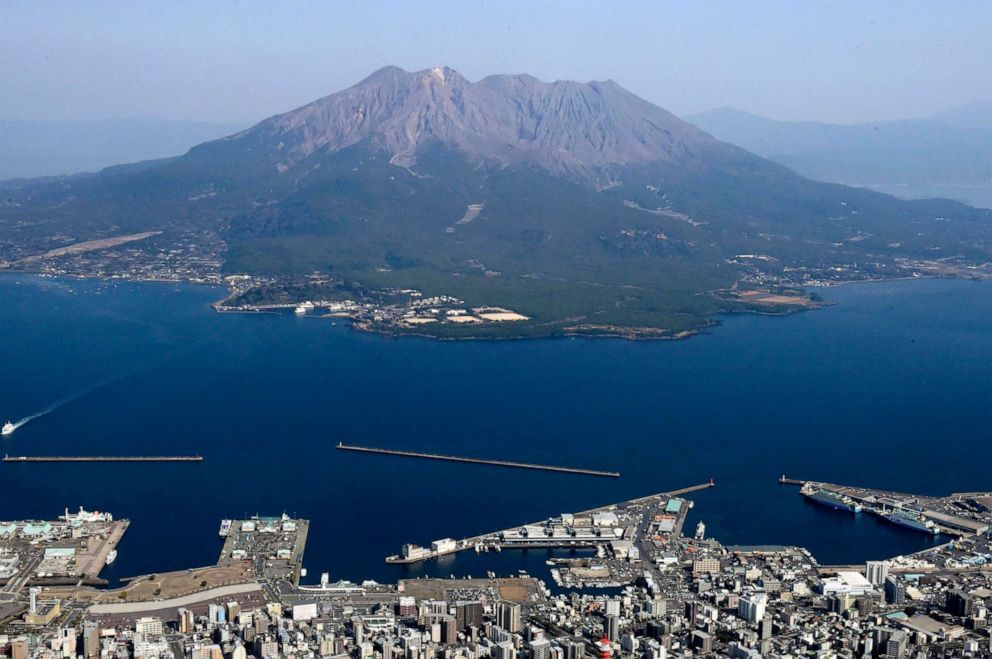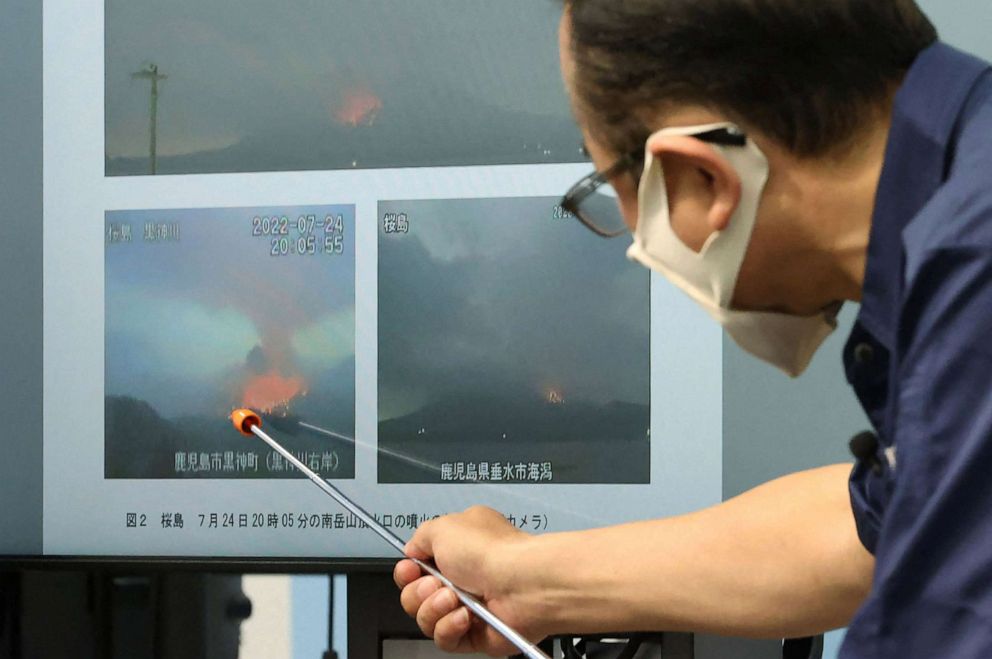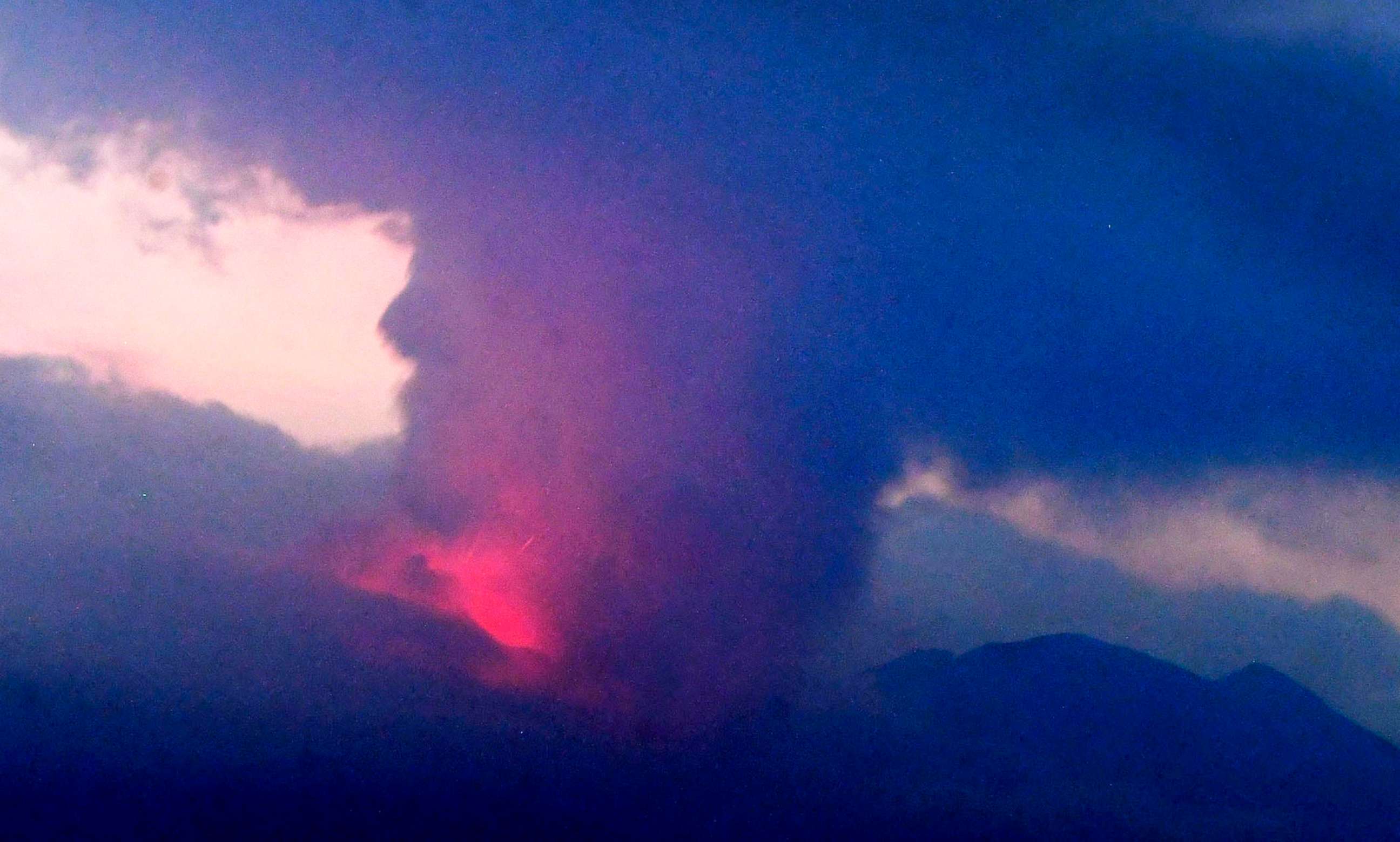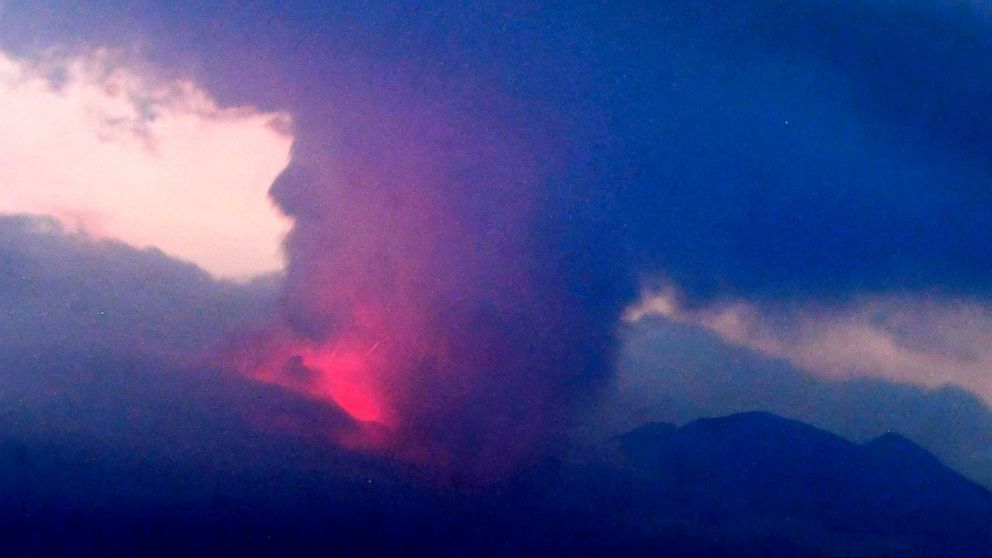Eruption of Japan's Sakurajima volcano prompts evacuation orders for nearby residents
An eruption of the Sakurajima volcano in Japan has raised emergency alerts of their highest levels and prompted evacuations for residents nearby.
The volcano, located in Japan's southwestern prefecture of Kagoshima on the western island of Kyushu, erupted at 8:05 p.m. local time on Sunday, according to Japan's Meteorological Agency.
The emergency alert in the region has been raised to level 5, the highest, and evacuations were ordered for residents living within a 2-mile range of the crater, including parts of Arimura-cho, Furusato-cho and Kagoshima City, where about 600,000 people live.

The volcano is still "very active," and windows can break due to the vibrations from the continuous explosions and falling debris, including large rocks and ash, according to the agency.
The ash and smaller rocks can also be carried on by winds, NHK, the Japan Broadcast Corporation and a partner of ABC News, reported.

Frequent explosive activity has been occurring at Sakurajima for centuries, according to the Smithsonian National Museum of Natural History. There has been persistent activity at the Minamidake summit cone and crater since 1955, and the Showa crater has also been intermittently active since 2006.
Activity decreased significantly in May 2021 and throughout the rest of the year, when the number of monthly explosions and ash emissions were both much lower compared with the first half of the year, according to the Smithsonian.
A task force has been set up at the prime minister's office, which has called up a team of officials from various agencies to assess the extent of the emergency, NHK reported.

Additional information on the severity of the eruption was not immediately available.
ABC News' Christine Theodorou contributed to this report.




